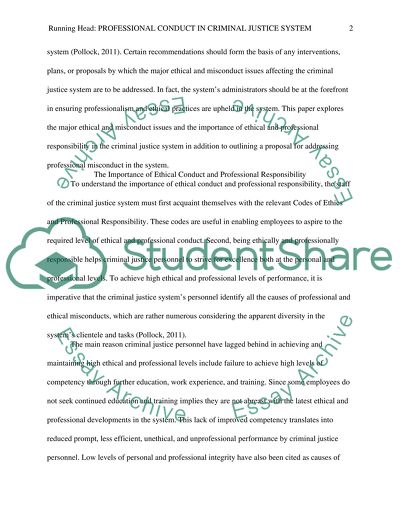Cite this document
(“The Importance of Ethical Conduct and Professional Responsibility Essay”, n.d.)
The Importance of Ethical Conduct and Professional Responsibility Essay. Retrieved from https://studentshare.org/other/1400209-the-importance-of-ethical-conduct-and-professional-responsibility-criminal-justice-system
The Importance of Ethical Conduct and Professional Responsibility Essay. Retrieved from https://studentshare.org/other/1400209-the-importance-of-ethical-conduct-and-professional-responsibility-criminal-justice-system
(The Importance of Ethical Conduct and Professional Responsibility Essay)
The Importance of Ethical Conduct and Professional Responsibility Essay. https://studentshare.org/other/1400209-the-importance-of-ethical-conduct-and-professional-responsibility-criminal-justice-system.
The Importance of Ethical Conduct and Professional Responsibility Essay. https://studentshare.org/other/1400209-the-importance-of-ethical-conduct-and-professional-responsibility-criminal-justice-system.
“The Importance of Ethical Conduct and Professional Responsibility Essay”, n.d. https://studentshare.org/other/1400209-the-importance-of-ethical-conduct-and-professional-responsibility-criminal-justice-system.


